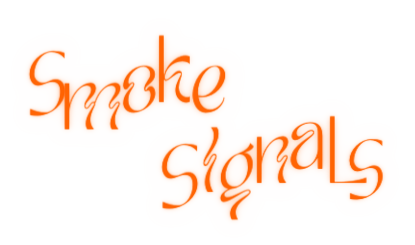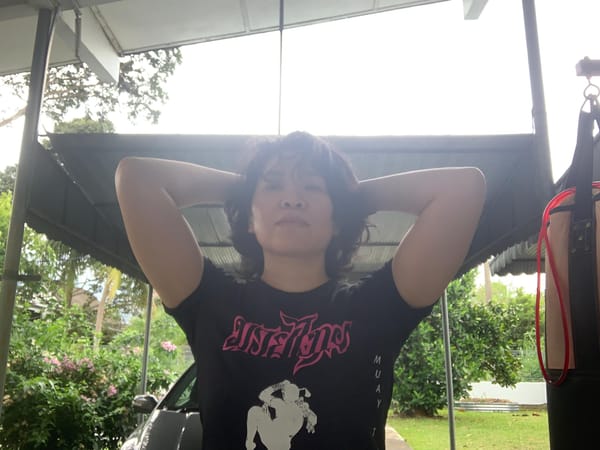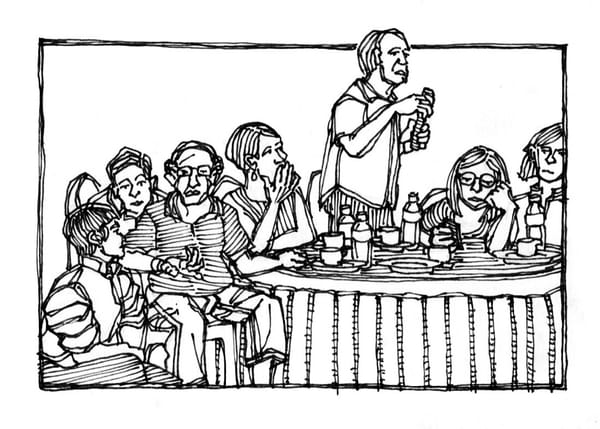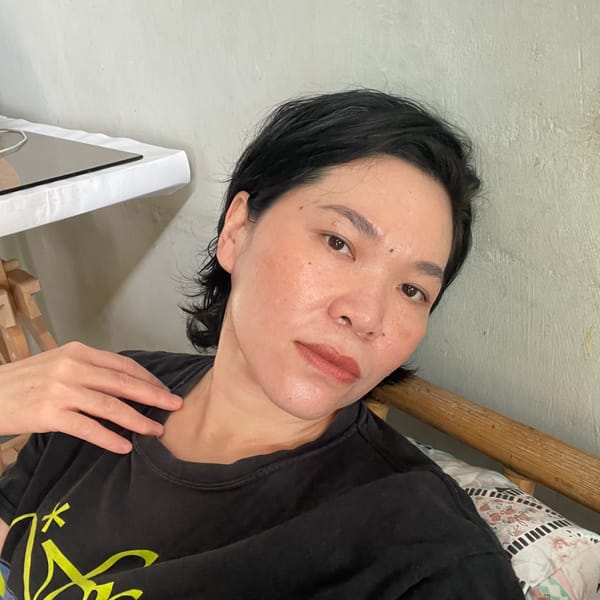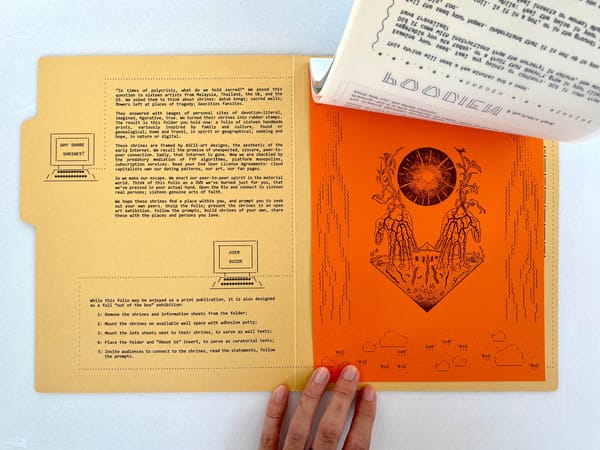Do we get to stay, too?
On not leaving Malaysia, with 'Portal' co-producer Zedeck Siew + updates, lots of updates!
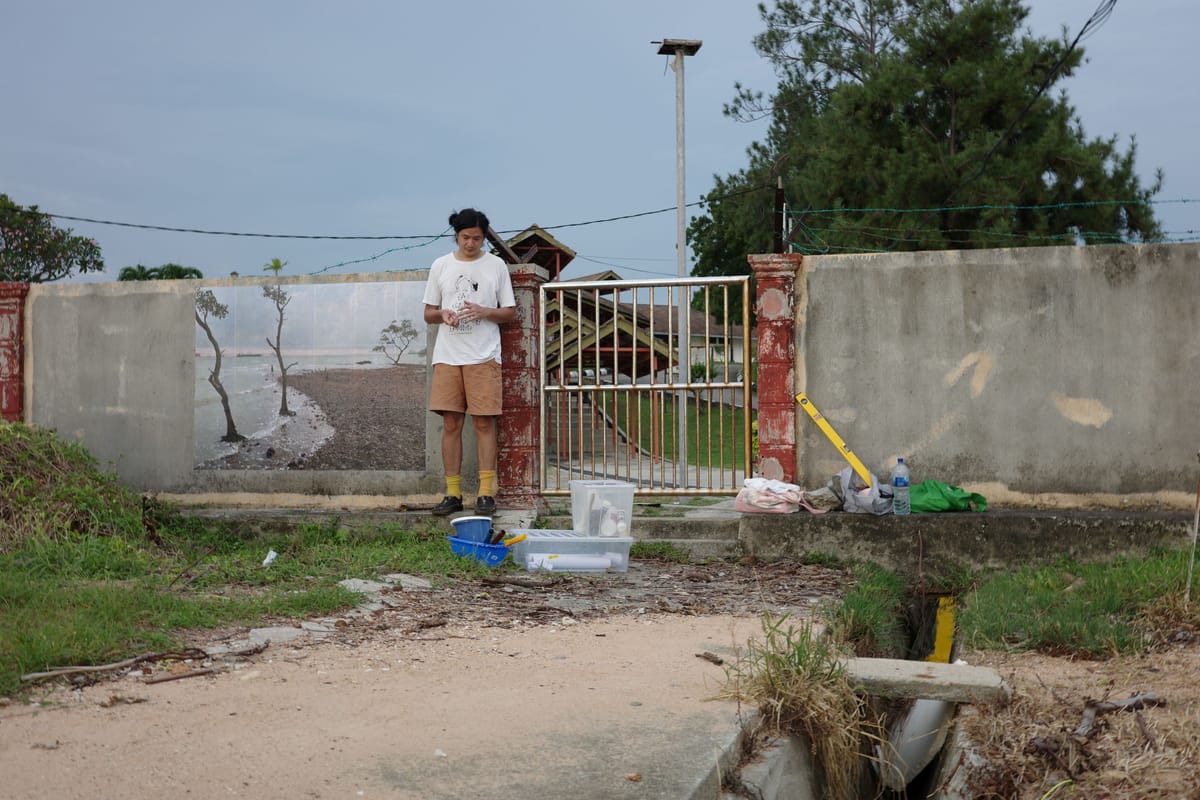
Updates. I have your updates! Followed by a big, juicy interview with Zedeck Siew, about working on 'Portal', rethinking being "important" and letting the land take care of things. This is a packed letter, let's get to it!
1) Dalam Southeast Asia: Figuring a Scene
- My work with shadow puppets lit by the oil refinery flare is still on view at National Gallery Singapore, extended through to 23 March 2025.
- Here's the video of my artist talk and conversation with Khairuddin Hori, and here's another video documenting my workshop 'Creatures of the Mind, Creatures of the Land'.
- I'll be in Singapore mid-Jan 2025 for Singapore Art Week, and would love to get drinks or coffee. I'm also looking for a good rave night, if anyone has tips.
- Congratulations to Figuring A Scene curator Dr Patrick Flores on his recent appointment as Chief Curator at NGS 🎉🎉🎉
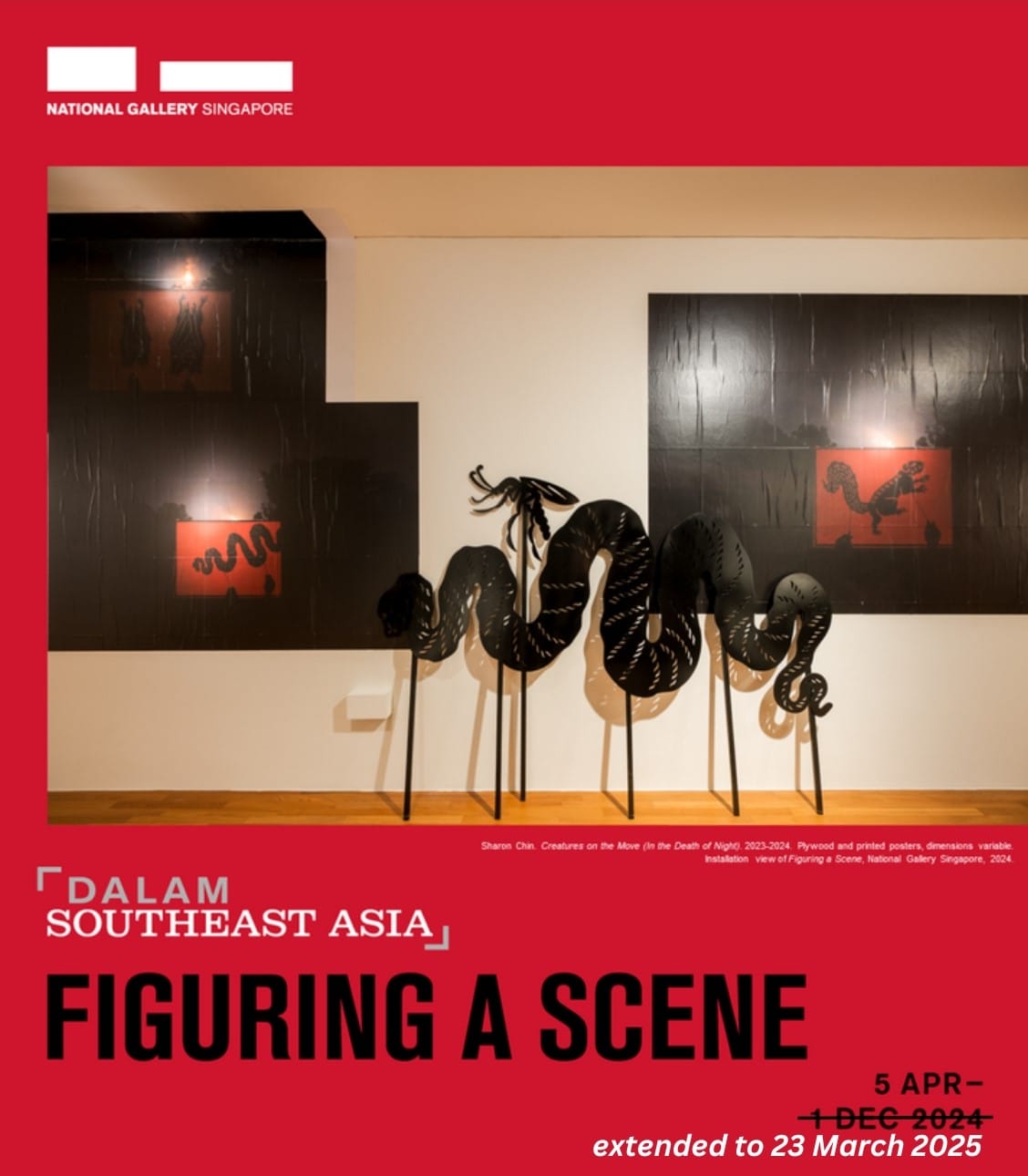
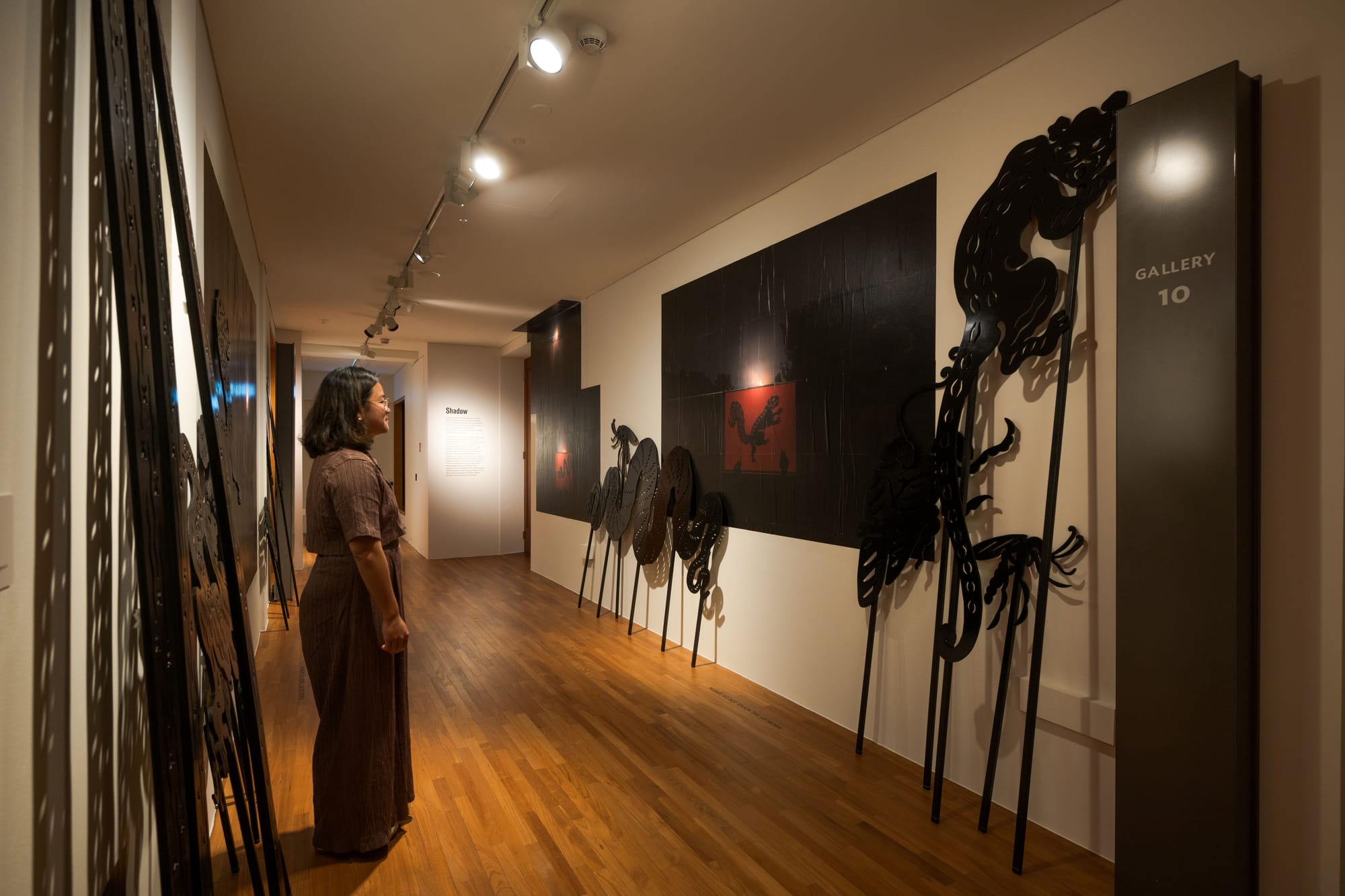
'Creatures on the Move: In the Death of Night', installation view at National Gallery Singapore. Images courtesy of National Gallery Singapore.
2) INKAA's debut collection
- I had fun art directing the shoot for INKAA's first collection, with co-founder and creative director Muizz Aziz.
- We tried to build the images around the idea of a Malaysian futurism, or what I'm thinking of as "batik punk". My decks were full of androids and solar panels. Muizz and I kept saying to each other throughout the shoot, like a riddle or mantra: Where's he coming from? Where's she going?
- Every inch of this collection is so personal and considered - great pants and shirts, jewellery from recycled bullet shells, bags knotted with rock-climbing rope and hand-poured brass carabiners, a heart-stopping skirt that I'm betting will be a bonafide hit... and colors that make you want to ride a storm cloud.
- I can't wait for this to launch early next year. For now, I can share these BTS, and a couple of pages from my decks:
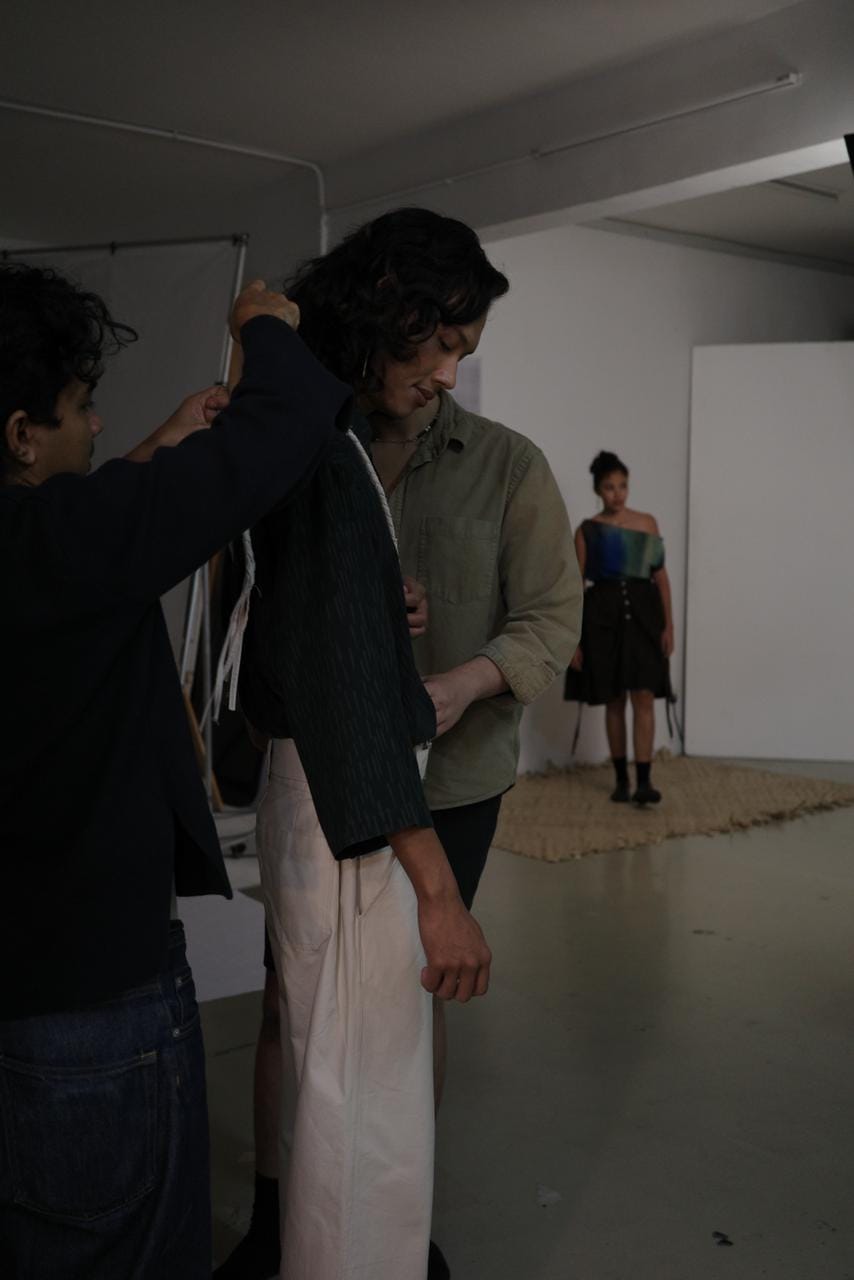
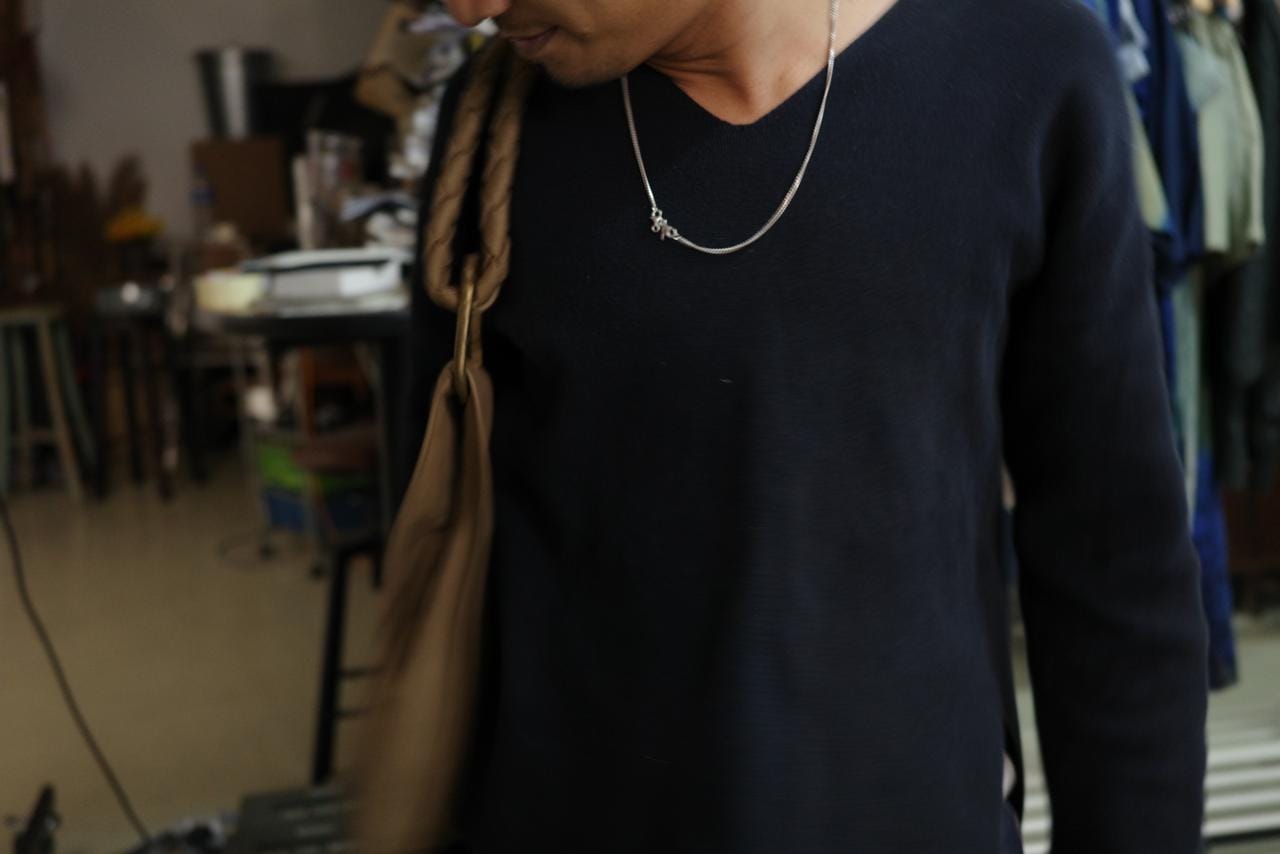
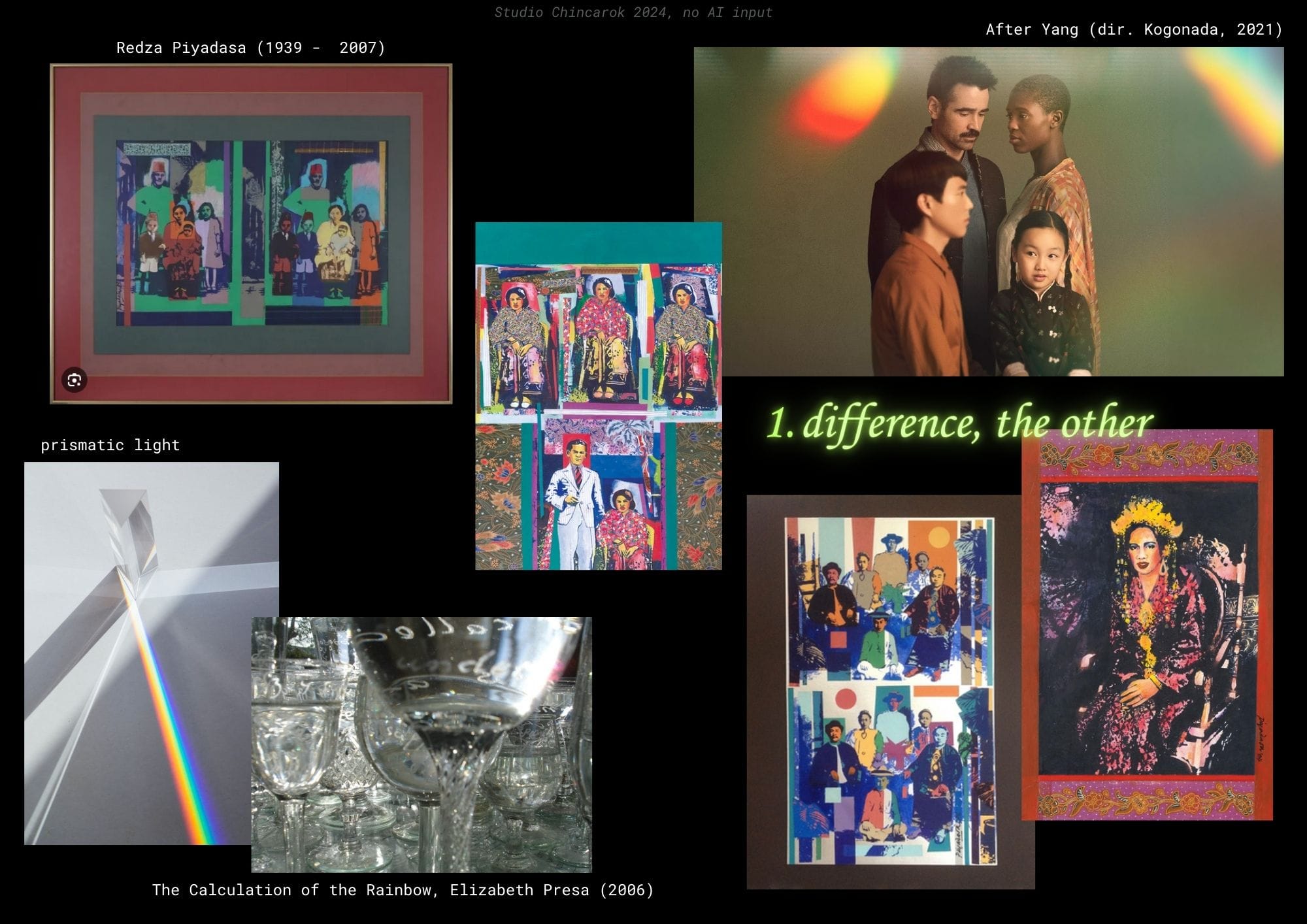
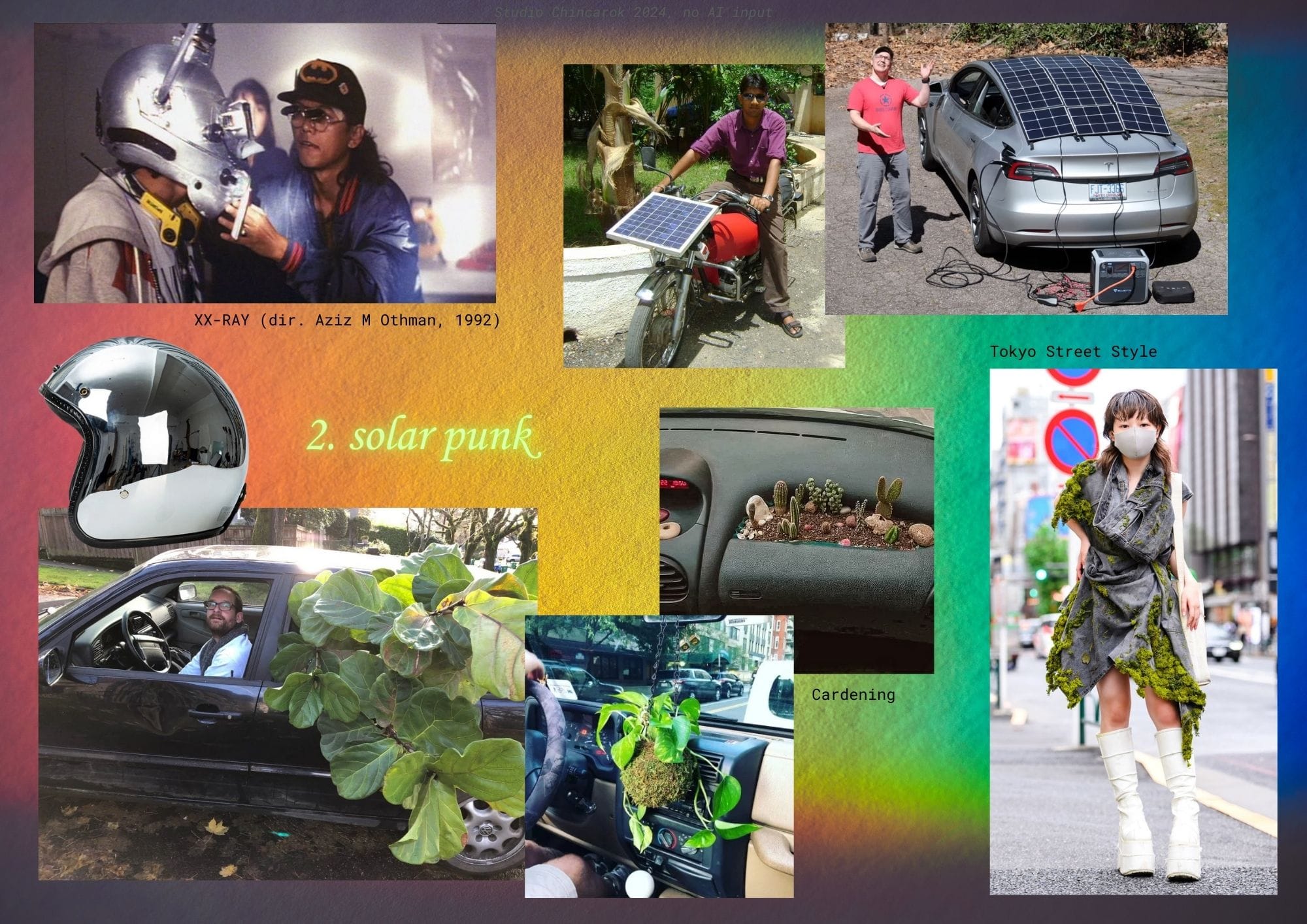
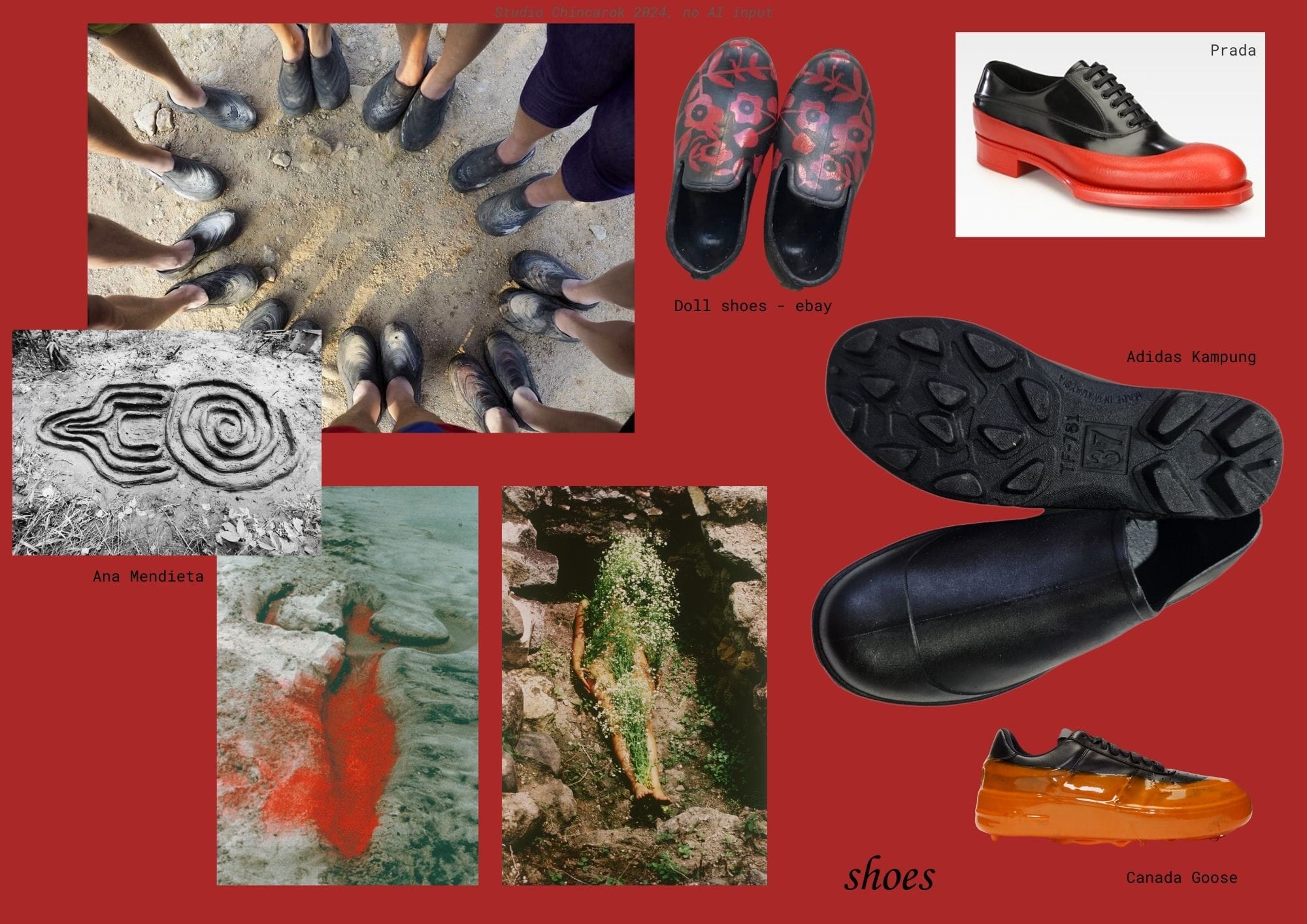
BTS photos by Grace Wong, concept decks by me. Courtesy of INKAA.
3) Art for Climate Justice — Reimagining Sustainable Futures, Belém do Pará, Brazil
- In September, I was in Brazil with the Prince Claus Fund CAREC Fellows for an immersive Lab Week which culminated in a public program at Curro Velho Cultural Centre ("old pen" in Portugeuse).
- It was my first time in Latin America, and one of the most intense and emotional experiences I've had in almost 20 years of making art. Belém is on the northeast coast of Brazil, often called the gateway to the Amazon. This is where freshwater meets the ocean. I'll never forget being carried by vast waves of sweet, not salty water, and hearing the music of carimbó masters seemingly embedded in the land itself...
- I got a chance to do 'Creatures of the Mind, Creatures of the Land' with local participants, helped by an awesome translator, Sarah.
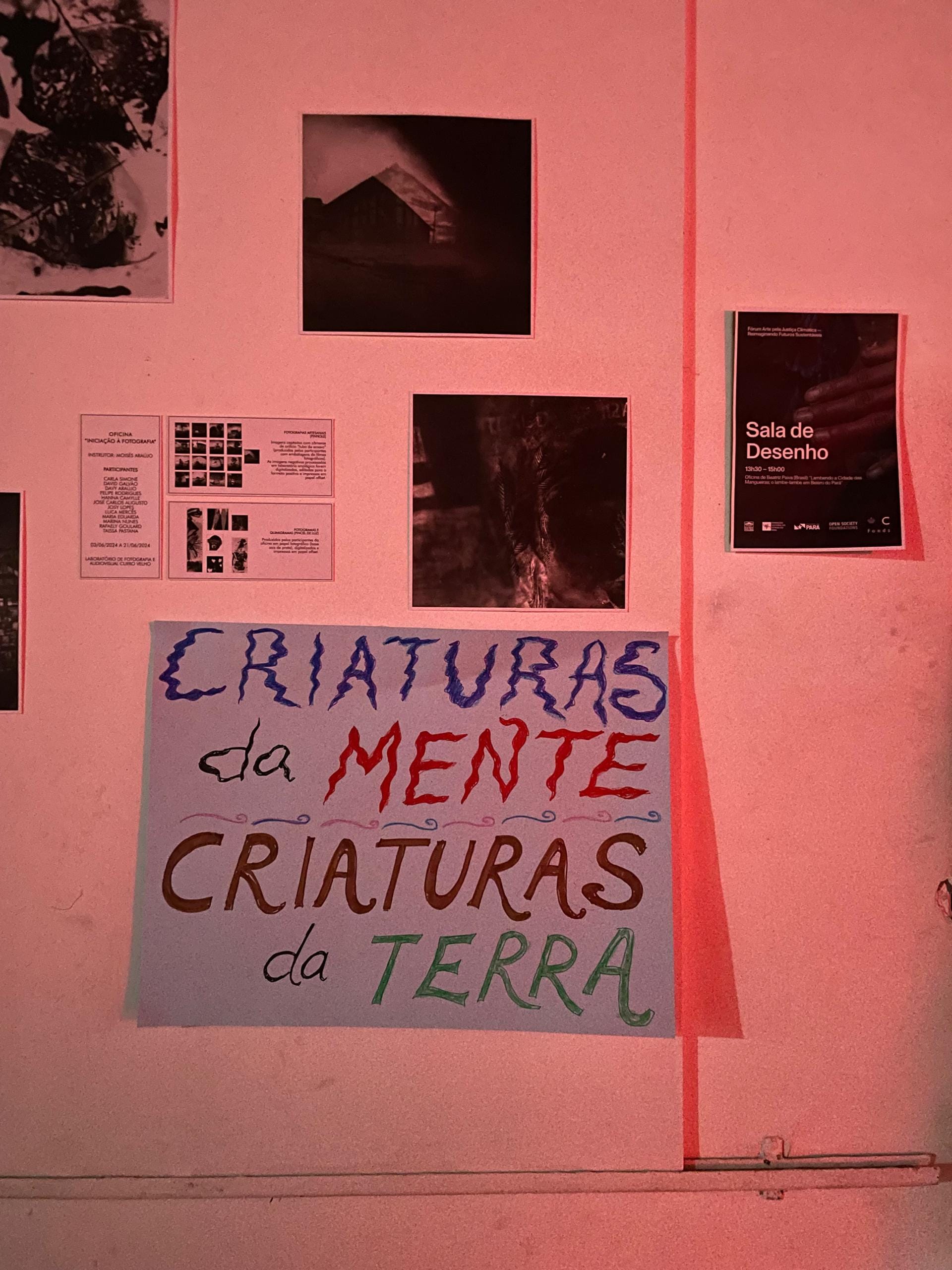
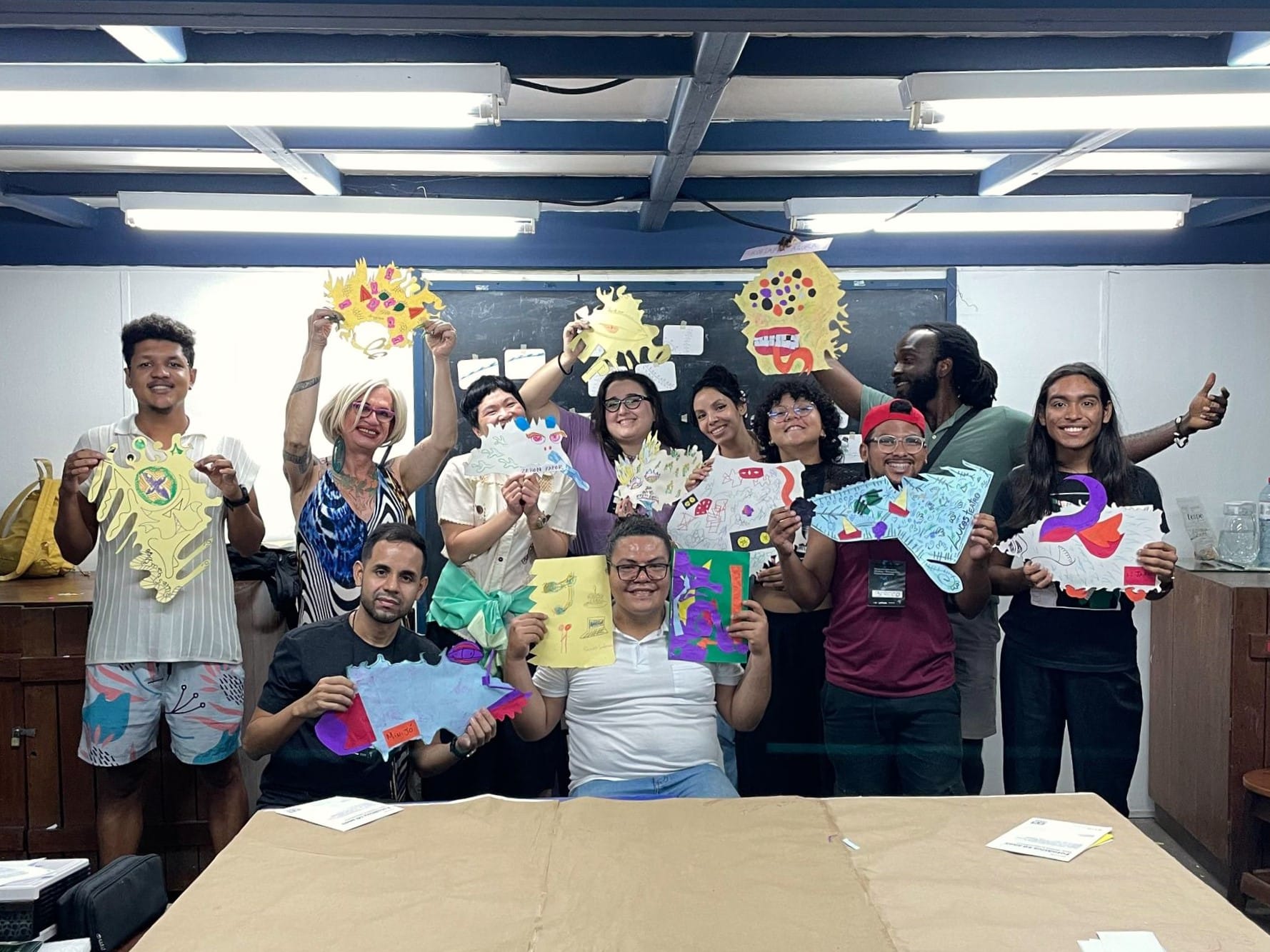
I love doing this workshop so much. Sarah, my translator, is in the middle and beside me, in the back row. She's wonderful.
Ok, there's more. But I never want this letter to feel like an endurance test for me, or for you, dear reader. This is why I shouldn't wait so long between sends. I'm keeping the rest of the updates for next time... so we can tune straight into to that sweet, sweet Signal with Zedeck:
"Hating myself less": Zedeck Siew on sitting with perepats and bintangors
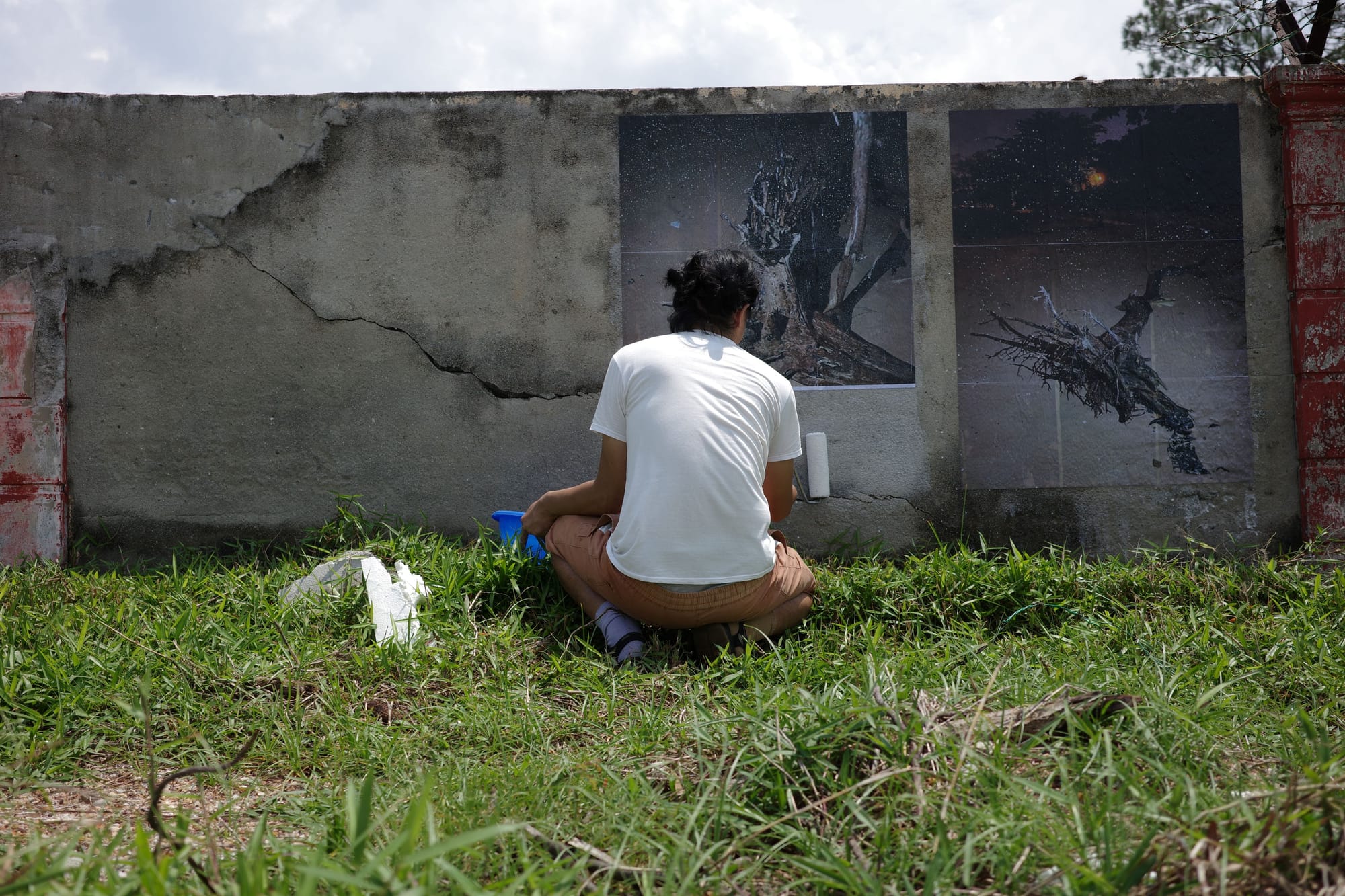
Sharon Chin
Zedeck Siew
- So this beach has a couple of names. On Google Maps it’s Pantai Kampung Bahasa Kapor. I knew it as Costa Rica Beach because of the hotel nearby. I refer to it variously as “the beach”, “my favorite beach” … “our beach”.
In my heart I call it Ratnam’s Beach, after the person who has loved it much longer than I have.
What do you call the beach?
When I talk about it to other people I call it: “Our favourite beach.” If I am talking about it in relation to you I say: “Sharon’s favourite beach.”
Don’t think I’ve ever used the phrase: “My favourite beach.” That feels weird and proprietary.
- You were with me the night we discovered the two trees had blown down. We had tea at Hassan Murtabak afterwards. You worried about the emotional hardship that seemed unavoidable given this relationship to the beach. But it’s not all about losing this or that beloved tree … right?
What are some weird or adorable things you’ve experienced here?
We celebrated your 40th at the height of the Covid lockdown. We spent that evening on the beach, a video call open with our close friends. We pointed the laptop camera at the horizon, and together watched the sun set.
Later people started saying their goodbyes, logging off. By the light of the laptop screen, I noticed pebbles moving along the length of the beach. They were shells—hermit crabs. With dark fallen they had come out. They were so many! Like the whole beach was drifting, right to left.
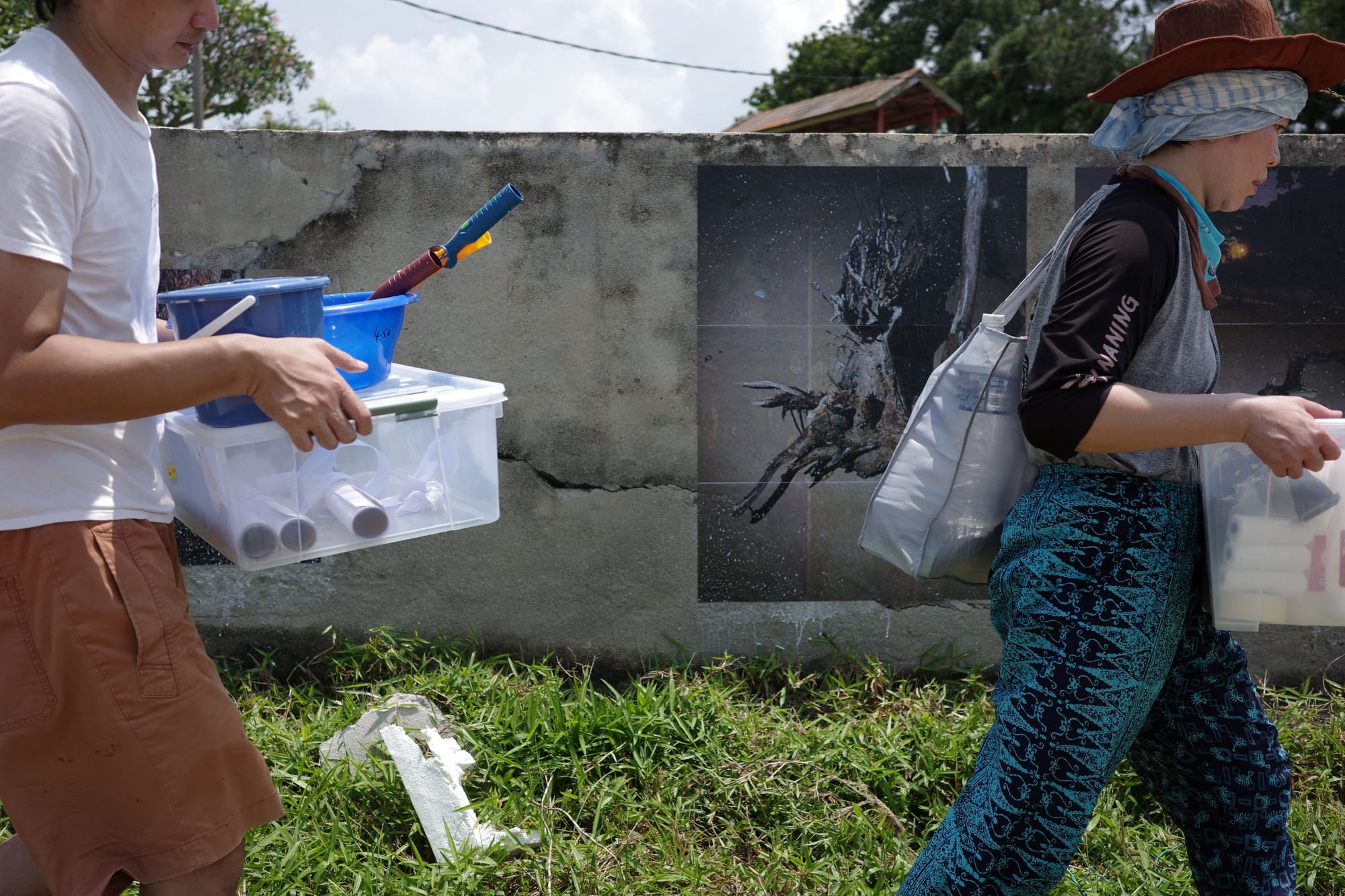
- I’m thinking about that line Galadriel says to Gimli in the Lord of the Rings: “...the world has grown full of peril, and in all lands love is now mingled with grief.”
Malaysia seems to be growing more conservative, which, along with mediocrity, also breeds a kind of emotional stuntedness in us. Spending time on the land has helped me experience a range of emotions in a healthy way—rewiring what anger, fear, grief, love, reciprocity, intimacy and even achievement can look and feel like.
How do you relate to the beach now, compared to when we first started coming here?
Growing up in Port Dickson I remember the beach as an ordinary annoyance: the sand gets everywhere; you need to apply screen for the sun; the seawater is notoriously unsanitary. The only swimming I ever did was at the local club, in a pool that, ironically, overlooked the beach.
The beach was yet another mundanity I couldn’t wait to move away from, to more exciting things.
Now I have a different relationship to the beach, mainly because of you. As you discovered this landscape I rediscovered it. For the first time I saw the majesty of the sunset; touched the coral polyps; met the perepats and bintangors.
In 2023 I sat in a bintangor tree, put my nose to its fragrant bark; it helped me make the decision to end a toxic friendship. In 2024 I read a story I wrote to a perepat tree; its listening helped me hate my self less.
Now I love this beach and this land. I no longer wish to move away from this place. I would be heartbroken to be parted.
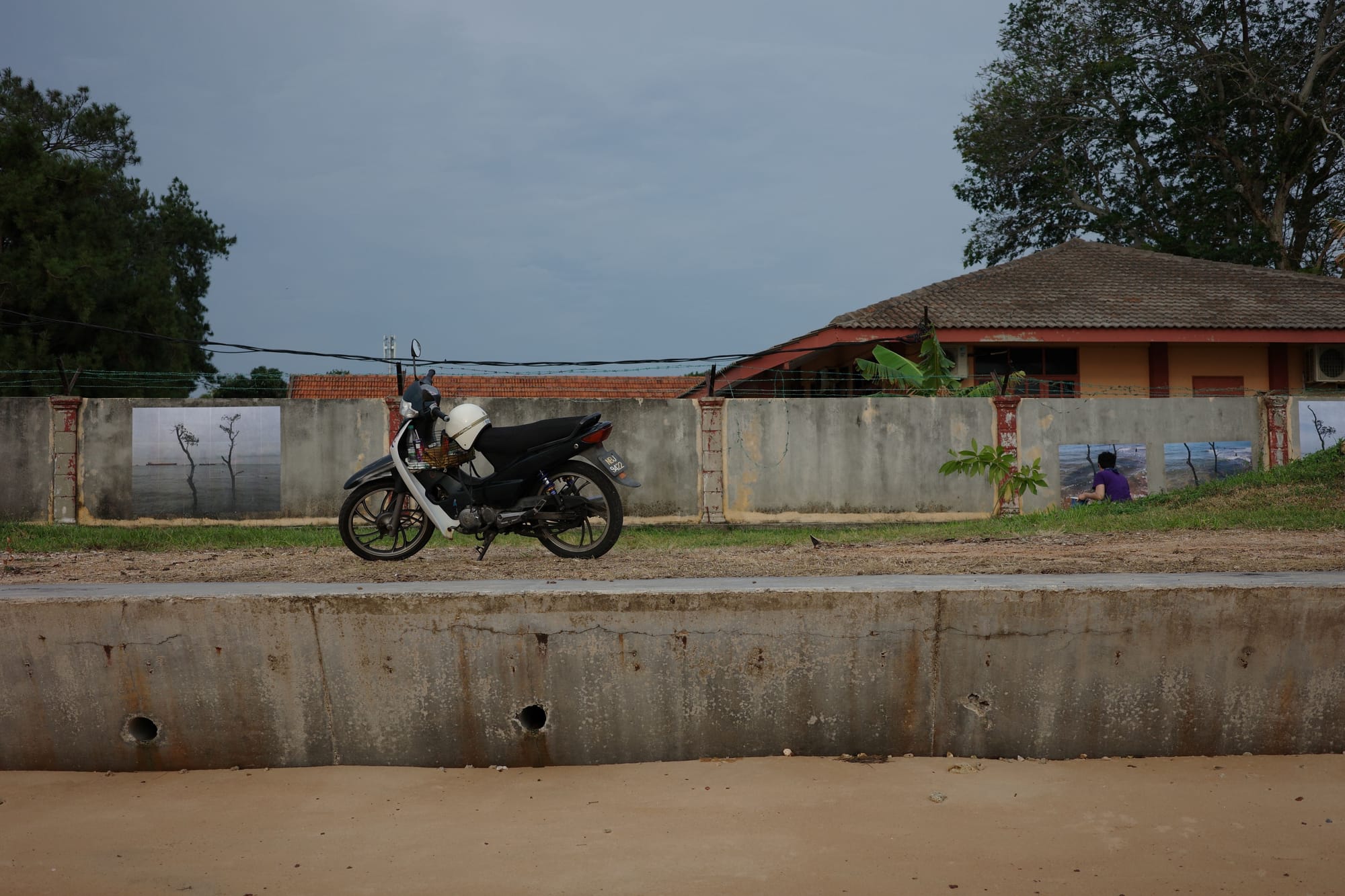
- When we were pasting photos of the two trees on the beach, we had an encounter with a local elder. The topic of conversation was, let’s say, a recurring theme by now—an interrogation of who we are, what we’re doing, why we’re sticking around Malaysia, don’t we know it’s hopeless and racist, how their children have escaped overseas and are so successful, how they themselves won’t leave because … well, they love Port Dickson.
We usually deflect so we can dip out faster, but that day you had TIME for this one uncle. “Do we get to stay, too?”, you asked. I practised my thousand-yard stare and let you get into it with him. It felt important. What do you think about that encounter now?
When that uncle came by and started yapping I engaged because it was a distraction. We were using wheatpaste to put up the photo posters—and I hate working with glue; I hate getting my hands all gooey and smelly. So instead of getting irritated by the work I got irritated by that uncle instead.
At first he talked about how we should leave, because other races were taking all the jobs and destroying the country. And then he talked about how it was all the fault of liberals, and that we needed somebody like Trump to get rid of all the liberals. And then he said that Modi has the right of it, and how places like India and the US were better because of their strong leaders.
And when I asked him, if Malaysia was so bad, why didn’t he move overseas like his children did, and he said he loved Port Dickson so much—
I hated that. How could somebody who shares the love I do for this place also be such a massive idiot?
But I suppose this is strength training? Because people like this uncle are everywhere. He is our neighbour. And we need neighbours when we do community organising against things like refinery pollution or shoreline overdevelopment or to protest the building of an incinerator. And we will need strong stomachs ourselves, to work with idiots when we must.
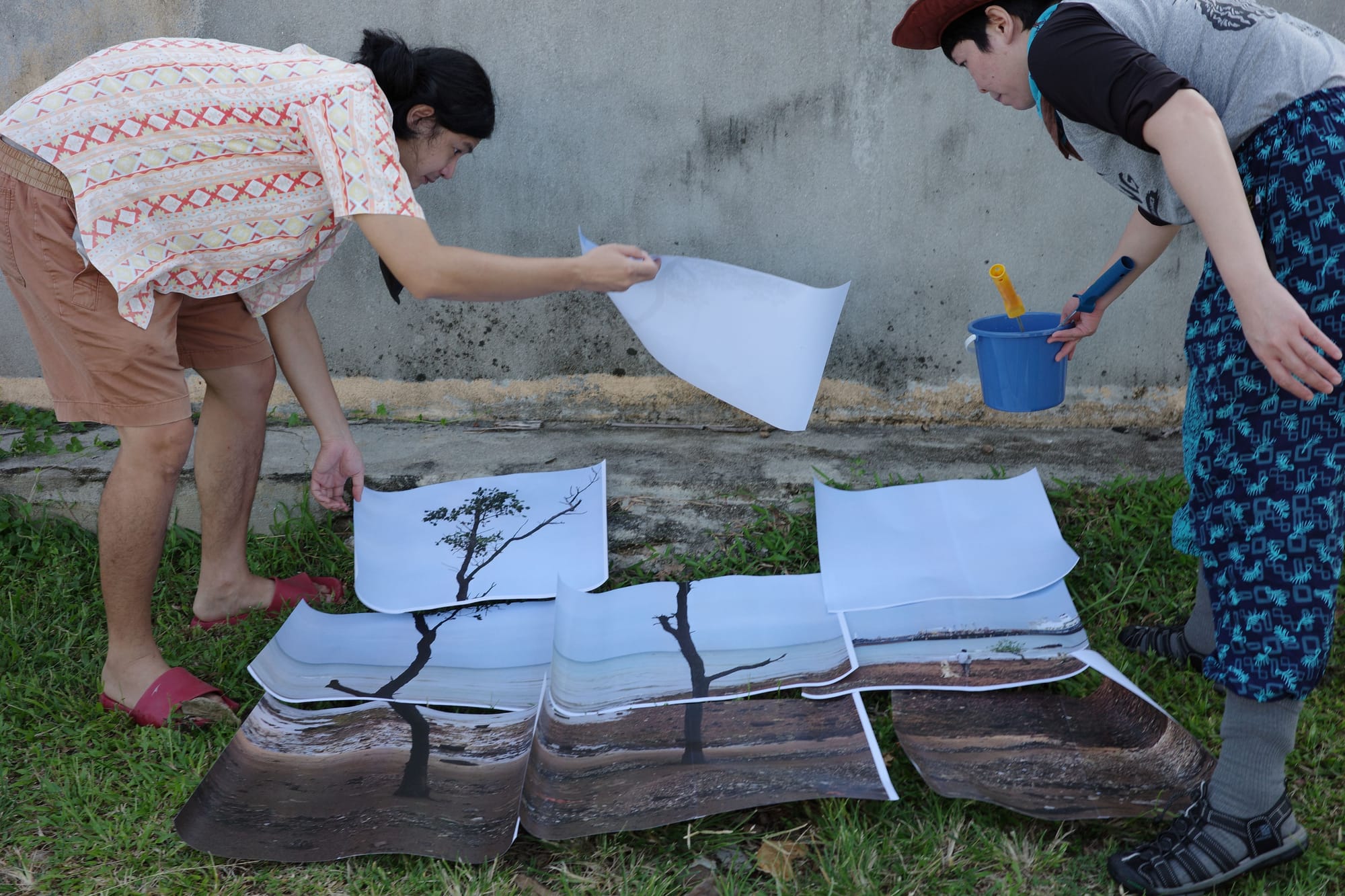
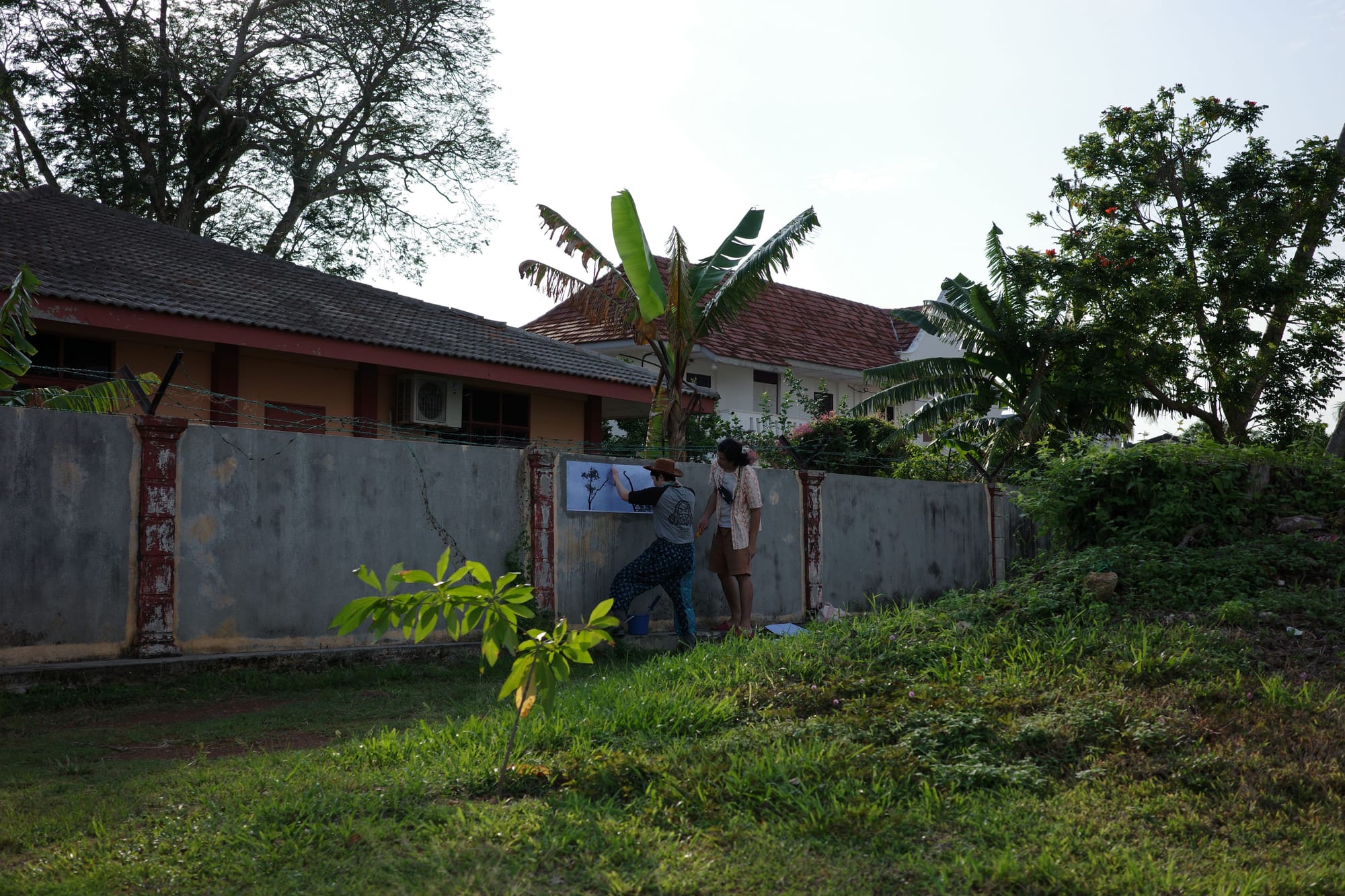
- Can you describe the atmosphere of the night when we lit the lamps on the beach? You called it “neighbourly”.
You have been afraid of the dark ever since your terrifying experience in Vietnam. And true darkness is so scary. I used to be so afraid of the dark myself, growing up, that my parents got church pastors to pray over me.
But our beach? I’ve never been afraid of it, no matter how dark it gets. Maybe it is because we know it so well, having walked its length and the small mangrove next to it, so often? While we were lighting the lamps we could hear the power station turbines roaring in the distance; see the lights of the shipping platform where my dad used to work; watch the shapes of people fishing and clamming; listen to the young people come to drink and laugh on the embankment. It felt like a weekend night out in a town we know well.
The most afraid I’ve been on our beach is when a dog barked at me from the mangroves. I could not see it, and I am afraid of dogs. But we know those dogs. The mother and her teen pups who live in the mangrove, and come trotting up to us in daytime, wagging their tails, eyes soft and hopeful.
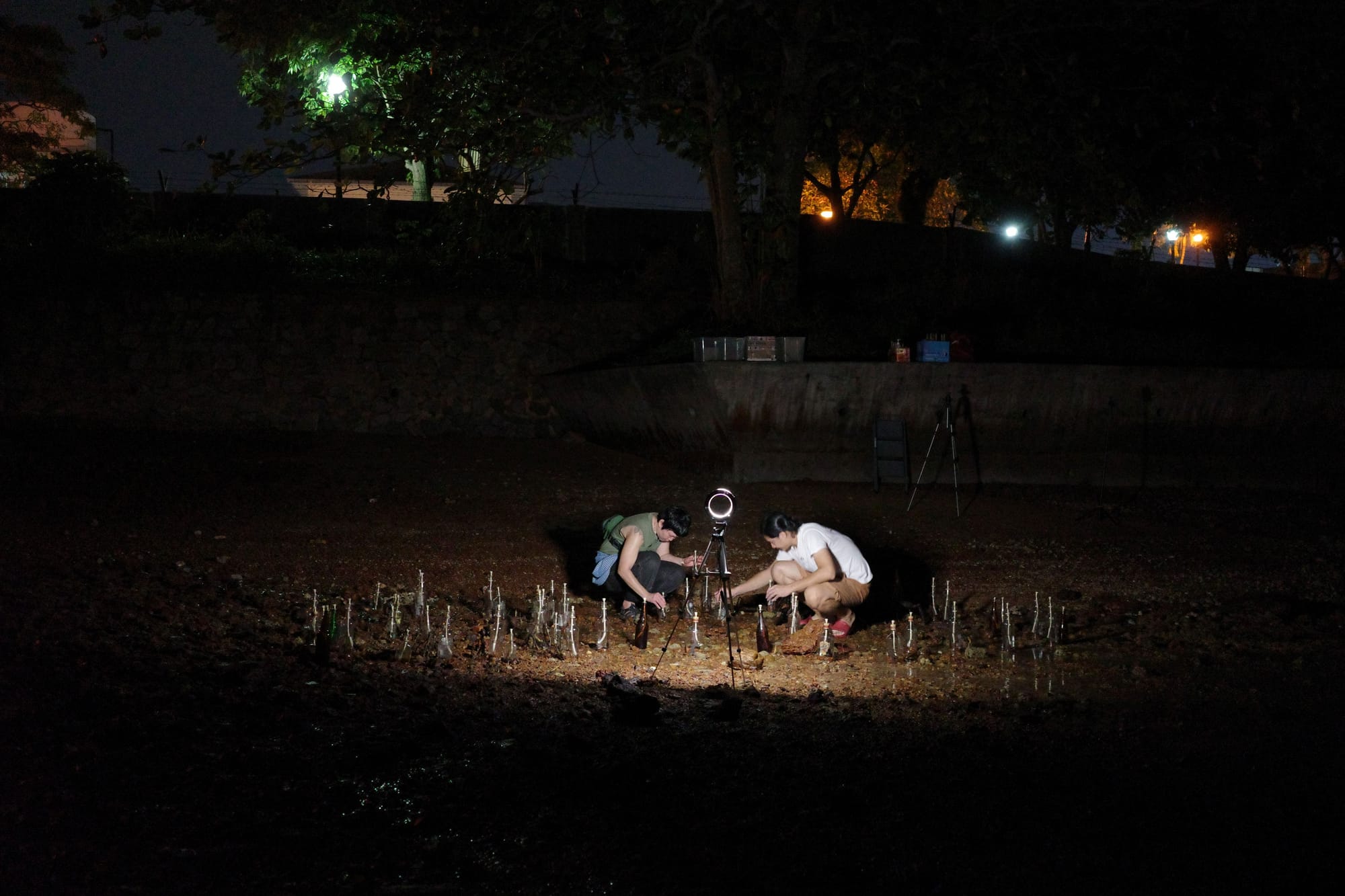
- I’m a transplant from the city, but Port Dickson is your hometown. We talk alot about the addiction to being "relevant" and how that messes with our ability to make interesting work where we are.
Can you talk about the hunger to be "important" as someone who grew up away from the metropole, then moved to the city, then back again to his small town? What do you hunger for now?
Growing up in a small town I never felt like I mattered. I wanted to move to the city because everything cool and sophisticated happened in cities, and if I lived there I too could be cool and sophisticated and matter.
Became a city person for a while. I mattered, I guess? Became an insider in various art scenes, did Journalism. Some of my closest friends from that time are now in government.
Moved back to my small town with you because being a city person who mattered didn’t stop me from getting retrenched, and being an insider in art scenes kept me too busy and sophisticated to sit down and actually write my book.
Wrote my first book in Port Dickson, and have been writing continuously, since.
I don’t think the hunger to be “important” has lessened in me, actually. My work has never been more urgent or relevant than it is now—had this confirmed in JILF [Jakarta International Literary Festival 2024], where they put me on a panel about eco-fiction, and I thought I’d little to say, because I don’t think about my work that way. But it turned out that I had a lot to say.
I think my definition of what counts as “important” has just expanded beyond what the metropole considers topical or relevant.
- In the last few years, my practice has shifted to focus on our neighbourhood and town. ‘Portal’ is the first time you’ve been credited as co-producer on one of these projects, but you’re always crucial to everything I do here.
How do you feel about this more formalized collaborative relationship? What will we be working on next year?
Shhh, secret!
But it has to do with wayang / you actually making shadow puppets. And it will be a game.
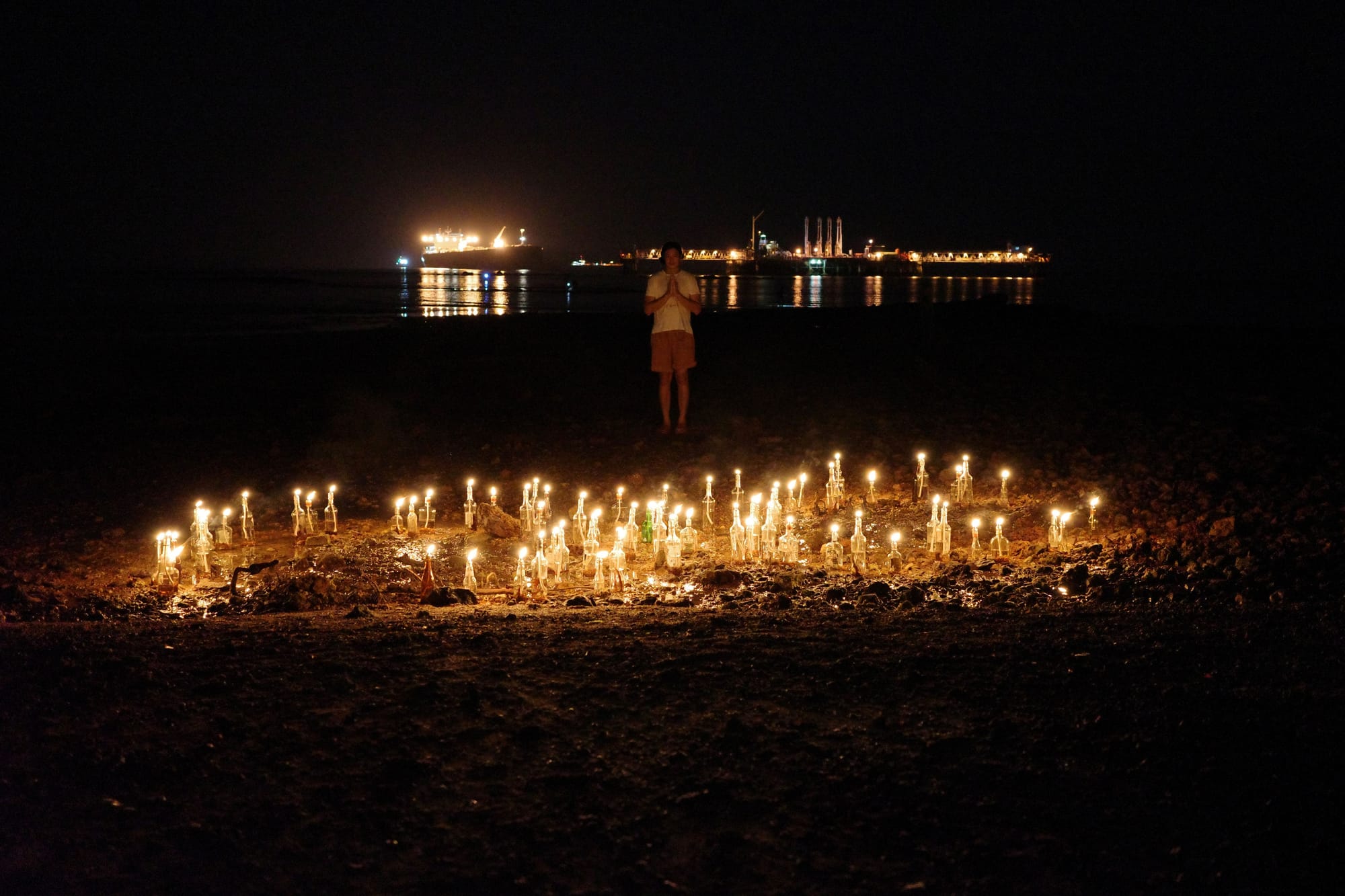
Zedeck Siew is a writer and games designer. All images by Grace Wong.
'Portal' is a commissioned work for Asian Art Biennial 2024, on view at the National Taiwan Museum of Fine Arts in Taichung from 16 November 2024 to 2 March 2025.
This has been Signal 007. Thanks for being here! Did you know if you subscribe to Smoke Signals it makes Zedeck and Sharon extremely relevant?
Scanner
This is where I leave you cool links:
- Erin Malikhain is a collage and zine artist based in Ipoh, whose work I've been following for awhile. Their recent solo show Out of Proportion felt like an artist pushing themselves–making the most of space, materials and even recycled frames. It felt fresh and ambitious. More of this semangat, please.
- Process Magazine, Vol 3 is out. Btw, I was invited to take part in Asian Art Biennial because the curator read my interview in Vol 2.
- My issues of EMOCEAN arrived, which immediately made me want learn to surfing AND make a magazine. The power of print!
